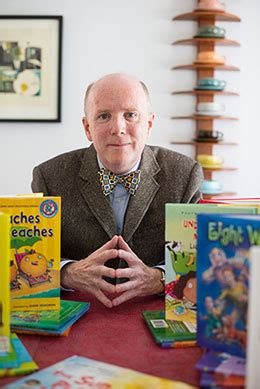A Quote by Thomas Jefferson
Where strictness of grammar does not weaken expression, it should be attended to. . . . But where, by small grammatical negligences, the energy of an idea is condensed, or a word stands for a sentence, I hold grammatical rigor in contempt.
Related Quotes
The question of "unreality"is a very important one. Misled by grammar, the great majority of those logicians who have dealt with this question have dealt with it on mistaken lines. They have regarded grammatical form as a surer guide in analysis than, in fact, it is. And they have not known what differences in grammatical form are important.
Let me just acknowlege that the function of grammar is to make language as efficent and clear and transparent as possible. But if we’re all constantly correcting each other’s grammar and being really snotty about it, then people stop talking because they start to be petrified that they’re going to make some sort of terrible grammatical error and that’s precisely the opposite of what grammar is supposed to do, which is to facilitate clear communication.
Native speakers of a language know intuitively whether a sentence is grammatical or not. They usually cannot specify exactly what is wrong, and very possibly they make the same mistakes in their own speech, but they know-unconsciously, not as a set of rules they learned in school-when a sentence is incorrect.
It strikes me that mathematical writing is similar to using a language. To be understood you have to follow some grammatical rules. However, in our case, nobody has taken the trouble of writing down the grammar; we get it as a baby does from parents, by imitation of others. Some mathematicians have a good ear; some not (and some prefer the slangy expressions such as 'iff'). That's life.
The secret of good writing is to strip every sentence to its cleanest components. Every word that serves no function, every long word that could be a short word, every adverb that carries the same meaning that’s already in the verb, every passive construction that leaves the reader unsure of who is doing what—these are the thousand and one adulterants that weaken the strength of a sentence. And they usually occur in proportion to the education and rank.


































